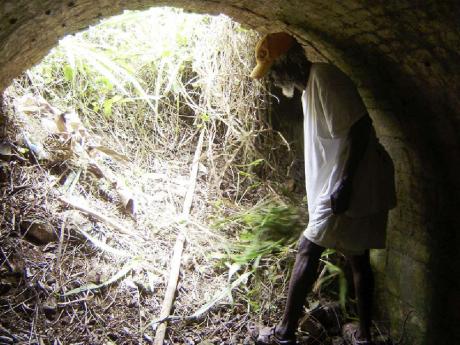... Of sugar and underground tunnels
WESTERN BUREAU:
Located just over 30 minutes from Montego Bay, St James, is the quaint community of Adelphi, which has a history rooted in the sugar and slavery industries of the late 1700s to 1800s.
According to information from the Jamaica National Heritage Trust (JNHT), it is believed that the district was named after Adelphi, London, by an English Quaker named Isaac Winn, who first bought the property in 1786.
It also became the first place in the parish of St James where religious education was given to slaves.
"Winn, wishing to purchase slaves, went to Kingston to do so. He then found several of them that had received religious instruction at Rev George Lisle's Baptist Church on Windward Road in that city, and they bemoaned the fact that where they were going, they would no doubt receive none," said Lloyd Wright, JNHT research officer.
"Winn, a man ahead of his time, decided to take a religious teacher with him. To this purpose, Moses Baker, a runaway slave from The Bahamas, who had been converted under Baptist preacher George Lisle's teachings, was chosen to go back to Adelphi with him. So successful was Baker's teaching that his converts became the nucleus of the first Baptist Church to be established in St James."
Later in 1887, Adelphi came into ownership of the Government, which reserved a portion of land for a post office, a police station and a market, and sourced three sections to Benjamin Lowe - a planter and landowner hailing from Montego Bay.
Lowe's new property was once a famous sugar estate, with a great house. But by the time he acquired the property, both the house and plantation factory buildings were in ruins.
"The whole of this area was a sugar estate. The whole of Content was sugar. Lima, James Valley, Kent, Orange Valley, Green Park, all those properties at Hampden over that side, each of them used to manufacture sugar and rum," said Lowe's grandson Sylvester Hewan-Lowe.
"The whole of this coastline was sugar estates, and that's why Falmouth, formerly the capital of Jamaica, is such an important shipping port now."

